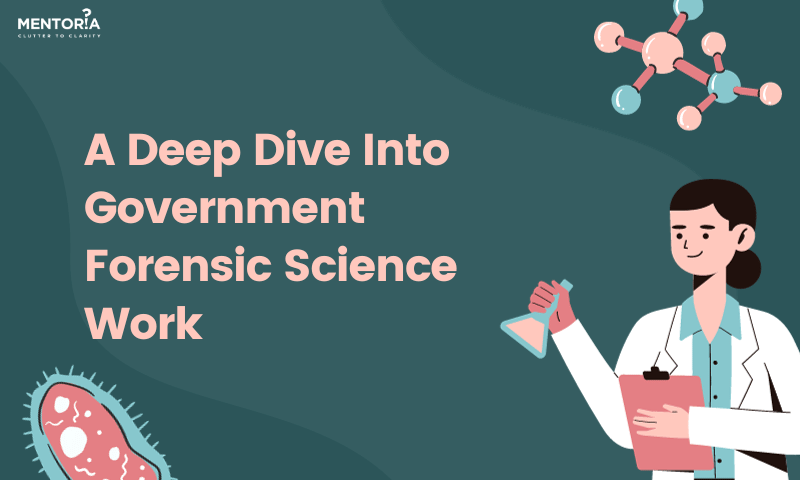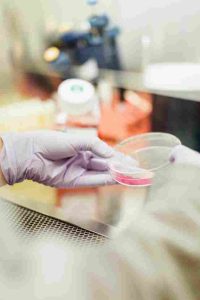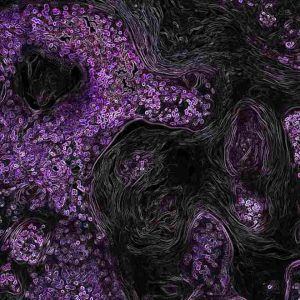A Deep Dive Into Government Forensic Science Work

Working within a government forensic science laboratory offers a unique opportunity to make a tangible impact on society. In this setting, the primary objective remains crystal clear: to provide impartial and scientifically rigorous analyses that play a vital role in criminal investigations and court proceedings. The advantages of pursuing such a career are multi-faceted. It’s a profession imbued with a profound sense of purpose and responsibility. Nevertheless, like any profession, government forensic science is not without its unique set of challenges. Furthermore, with the constant march of technological advancements, continuous learning becomes imperative to remain at the forefront of this ever-evolving field. So, if you’ve ever found yourself captivated by the world of crime scene investigations, you’ve certainly found yourself in the right place.
Benefits Of A Forensic Science Career
Solving Puzzles Beyond Imagination
Working in a science laboratory for the government feels like stepping into the shoes of Sherlock Holmes himself. It involves gathering evidence, examining clues and unravelling mysteries that even the brightest minds find perplexing. It’s an exhilarating expedition, into territory, where each case presents a one of a kind puzzle to solve.
Variety Is The Spice Of Life
Forget monotony! Forensic scientists deal with a wide range of cases, from identifying unknown substances to analysing bloodstains and even decoding cryptic messages. Each day is a new adventure that keeps you on your toes.
Justice Served, Lives Changed
Perhaps the most rewarding aspect of this career is knowing that your work can change lives. Your findings can exonerate the innocent and ensure that the guilty face the consequences of their actions. It’s a powerful feeling of making a real difference in society.
Cutting-Edge Technology
Government forensic labs are at the forefront of technology. You’ll have access to state-of-the-art equipment, from DNA sequencers to electron microscopes. It’s a techie’s dream come true.
The Bond Of A Tight-Knit Community
Working alongside like-minded individuals who share your passion for uncovering the truth creates a strong sense of camaraderie. The bonds you form with your colleagues can last a lifetime.
Challenges In Forensic Science
Emotional Toll
Dealing with crime scenes and evidence can be emotionally draining. Some cases can be particularly gruesome, and it takes a strong stomach and emotional resilience to handle them.
Pressure Cooker Environment
High-profile cases can mean relentless pressure and tight deadlines. The need for accuracy is paramount, and mistakes can have serious consequences.
Legal Hurdles
The legal system can be a labyrinth. Navigating the courtroom as an expert witness can be intimidating, and you must be prepared for rigorous cross-examination.
Continuous Learning
Technology evolves rapidly, and forensic science is no exception. Staying up-to-date with the latest advancements and techniques is a constant challenge.
Administrative Bureaucracy
Working within government organisations means dealing with administrative red tape. Procuring necessary equipment, obtaining funding, and ensuring smooth operations can be a bureaucratic maze.
Unveiling The Lesser-Known Aspects
Now, let’s uncover some lesser-known facets of working in government forensic science laboratories:
- Forensic Odontology: Ever heard of a “bite mark analyst”? Forensic odontologists examine bite marks on victims and compare them to dental records to identify perpetrators. It’s like something out of a crime drama!
- Forensic Entomology: Insects can be key witnesses in a crime scene investigation. Forensic entomologists study the life cycles of insects found on corpses to estimate the time of death. It’s an unusual but vital role in solving crimes.
- Digital Forensics: With the rise of technology, digital forensics experts are in high demand. They recover and analyse digital data from computers, smartphones, and other devices to piece together cybercrimes.
- Forensic Botany: Yes, even plants have a role to play in forensics. Botanists can analyse plant material found at crime scenes to determine location, time of death, and even the cause of death.
- Forensic Artistry: Forensic artists use their skills to create composite sketches of suspects based on eyewitness descriptions. Their work can be instrumental in identifying criminals.
A Peek Into The Education And Training
To embark on a career in forensic science, you’ll need a solid educational foundation.
Educational Foundation
- Bachelor’s Degree: Most forensic scientists begin their journey with a bachelor’s degree. While forensic science programmes exist, many successful professionals come from backgrounds in biology, chemistry, or related fields such as biochemistry or molecular biology. These foundational degrees provide a solid understanding of the scientific principles essential to forensic analysis.
- Forensic Science Programmes: Some universities offer specialised undergraduate programmes in forensic science. These programmes often cover a range of forensic disciplines, including forensic biology, chemistry, and criminalistics. Choosing this path can give you a direct and comprehensive education in the field.
- Coursework: Regardless of your major, coursework in areas like genetics, toxicology, criminal justice, and statistics can be beneficial. These subjects are highly relevant to forensic science and will prepare you for the specialised training to come.
Specialised Roles And Advanced Degrees
- Master’s Degree: While a bachelor’s degree is sufficient for many forensic science positions, certain specialised roles may require a master’s degree. These roles often involve leadership, research, and teaching positions within forensic science laboratories or academic institutions.
- Ph.D. in Forensic Science: Pursuing a Ph.D. in forensic science is an option for those aiming to become experts in their chosen field. This level of education is ideal for those interested in research, academia, or highly specialised roles. Ph.D. holders often contribute to the development of new forensic techniques and technologies.
Internships And On-The-Job Training
- Internships: Gaining practical experience through internships is crucial. Many universities and forensic science programs facilitate internships or cooperative education opportunities with local law enforcement agencies or forensic laboratories. During internships, you’ll work alongside experienced professionals, gaining exposure to real-world casework.
- Lab Technicians and Assistants: Often, entry-level positions in forensic science involve working as lab technicians or assistants. These roles provide hands-on experience in handling evidence, conducting tests, and maintaining laboratory equipment. This is where you’ll learn the ropes of forensic analysis and build your practical skills.
- Continuing Education: Forensic science is a dynamic field, constantly evolving with advances in technology and methodology. To stay current and advance in your career, consider continuing education and professional development opportunities. Workshops, seminars, and specialised training programmes can enhance your expertise.
Certification And Licensing
- Certification: Many forensic scientists choose to become certified in their specific area of expertise. Organisations like the American Board of Criminalistics (ABC) and the American Board of Forensic Toxicology (ABFT) offer certification programs for forensic scientists. Certification can enhance your credibility and job prospects.
- Licensing: In some jurisdictions, forensic scientists may be required to obtain a licence to practise. Licensing requirements vary by location and specialisation, so it’s essential to research the regulations in your area.
Mentoria – Your Guide To Forensic Career Success
In the world of forensic science, the labs within government institutions stand as pillars of truth, tirelessly working behind the scenes to uncover facts that can shape the course of justice. As we’ve explored the benefits and challenges of working in these specialised laboratories, one thing becomes abundantly clear: the pursuit of truth is both rewarding and arduous.
In this complex and demanding field, Mentoria stands as your guiding star. Our team of experienced mentors understands the intricacies of a career in government forensic science laboratories. We offer personalised guidance to help you not only survive but thrive in this challenging yet fulfilling profession.









